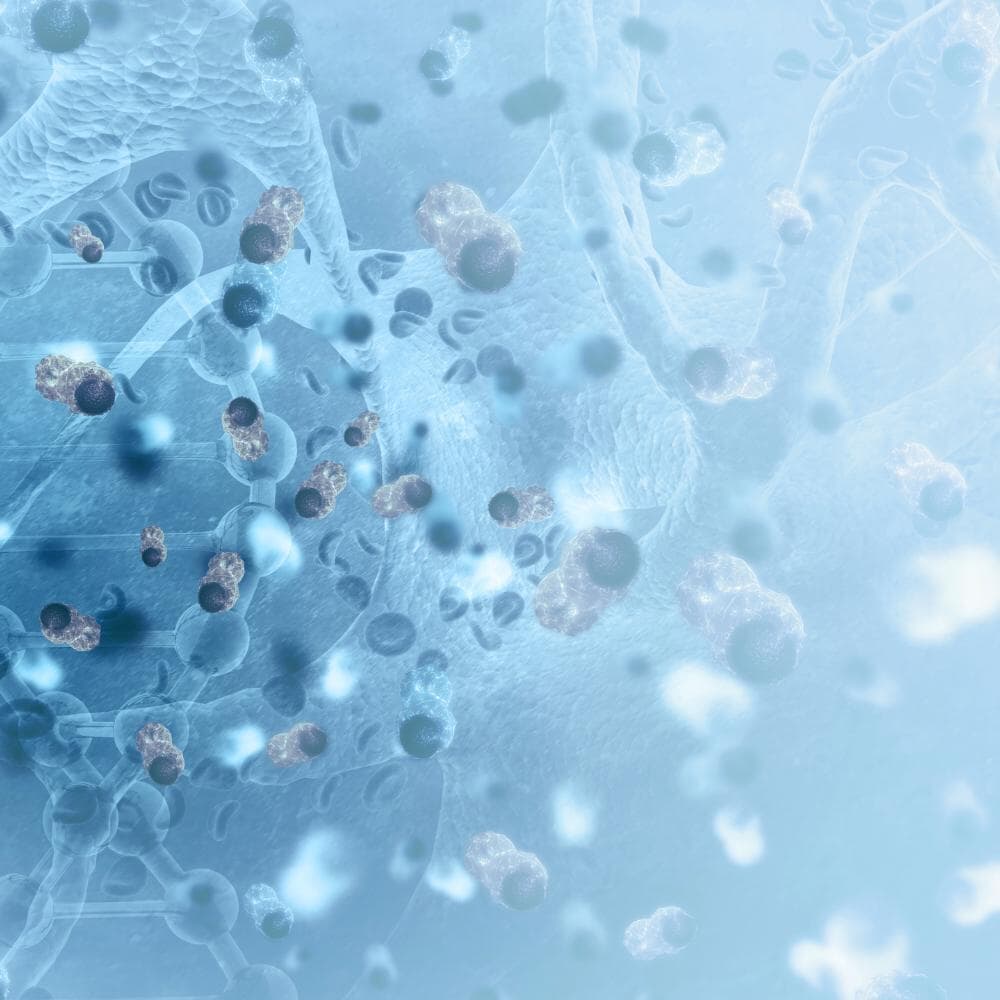
The world of cancer care is continually evolving, with innovative therapies emerging to improve patient outcomes. One of the most promising advancements in immunotherapy is CAR-NK Cell Therapy. This revolutionary therapy harnesses the power of the immune system’s natural killer (NK) cells. Moreover, this is genetically engineered to target and destroy cancer cells more effectively. At F3Nix Institute, we are at the forefront of this cutting-edge therapy, offering hope and healing to patients battling various types of cancer.
CAR-NK Cell Therapy is a form of immunotherapy that uses genetically engineered NK cells to target and destroy cancer cells. NK cells are a type of lymphocyte in the immune system that can kill tumor cells without prior sensitization. Scientists enhance the ability of NK cells to identify and attack malignant cells more efficiently by equipping these cells with CARs (chimeric antigene receptors). CARs are synthetic receptors that can recognize specific proteins on cancer cells,
Moreover, CARs are composed of an extracellular domain that binds to a tumor-associated antigen. A transmembrane domain, and an intracellular signaling domain that activates the NK cell upon antigen binding. In addition, this structure allows CAR-NK cells to specifically target cancer cells, reducing damage to healthy tissues and improving treatment outcomes.
CAR-NK Cell Therapy offers several significant advantages over traditional cancer treatments and other forms of immunotherapy, such as CAR-T cell therapy:
Reduced Toxicity: Unlike CAR-T cells, CAR-NK cells do not cause severe side effects like cytokine release syndrome (CRS) or neurotoxicity. Therefore, this makes CAR-NK therapy a safer option for patients.
Allogeneic Use: CAR-NK cells can be derived from donor cells, allowing for an “off-the-shelf” product. On the other side, CAR-T cells typically require patient-specific manufacturing.
Broad Applicability: NK cells do not require a perfect match between donor and patient. Therefore, this broadens their use across diverse patient populations.
Quick Availability: The production of CAR-NK cells is faster and more cost-effective, ensuring timely therapy, especially crucial for aggressive cancers.
Enhanced Efficacy: NK cells have innate abilities to kill cancer cells through various mechanisms. This includes antibody-dependent cell-mediated cytotoxicity (ADCC), which can complement the CAR-engineered targeting.
The process of receiving CAR-NK Cell Therapy typically involves several steps:
Patient Evaluation: Patients undergo a thorough evaluation to determine their eligibility for CAR NK-Cell Therapy. This includes a review of their medical history, current health status, and specific cancer type.
Cell Collection and Engineering: NK cells are collected from a donor or generated from umbilical cord blood or iPSCs. In addition, these cells are then genetically modified in a laboratory to express CARs targeting the patient’s cancer cells.
Pre-Therapy Conditioning: Before the infusion of CAR-NK cells, patients may receive a conditioning regimen to suppress their immune system, which helps the infused cells engraft and expand.
Infusion: The engineered CAR-NK cells are infused into the patient’s bloodstream, where they travel to the tumor site and begin attacking cancer cells.
Monitoring and Follow-Up: After the infusion, patients are closely monitored for any adverse reactions and to assess the effectiveness of the therapy. Regular follow-up appointments are also essential to track the patient’s progress and make any necessary adjustments to the treatment plan.
CAR-NK Cell Therapy is a rapidly advancing field with numerous ongoing research initiatives aimed at enhancing its effectiveness and expanding its applications. Current research focuses on improving the engineering of CAR-NK cells to increase their persistence and potency against cancer cells.
One promising approach involves combining CAR-NK cells with cytokines, such as interleukin-15 (IL-15), to enhance their survival and proliferation within the patient. Studies have shown that IL-15 can significantly boost the antitumor activity of CAR-NK cells without causing severe systemic toxicity.
Furthermore, another area of research is the use of gene-editing technologies, such as CRISPR-Cas9, to create more potent and durable CAR-NK cells. These advancements aim to enhance the cells’ ability to recognize and kill cancer cells while minimizing the risk of off-target effects.
In addition, the development of off-the-shelf CAR-NK therapies is also a significant focus, with researchers working on creating universally compatible NK cells that can be used across different patients without the need for individualized modifications.
CAR-NK Cell Therapy represents a promising advancement in the fight against cancer. With its potential for reduced side effects, off-the-shelf availability, and broad applicability, this innovative therapy offers new hope for patients battling various types of cancer. At the F3nix Institute, we are proud to be at the forefront of providing CAR NK-Cell Therapy, offering cutting-edge therapies to improve patient outcomes and quality of life.
For more information about CAR-NK Cell Therapy and how we can help you or your loved one, visit our website. Our team of experts is dedicated to advancing cancer therapy and providing personalized care to each patient.
Valeri, A., García-Ortiz, A., Castellano, E., Córdoba, L., Maroto-Martín, E., Encinas, J., Leivas, A., Río, P., & Martínez-López, J. (2022). Overcoming tumor resistance mechanisms in CAR-NK cell therapy. Frontiers in Immunology, 13. https://doi.org/10.3389/fimmu.2022.953849

The foremost Cancer Therapy is here.
;
;